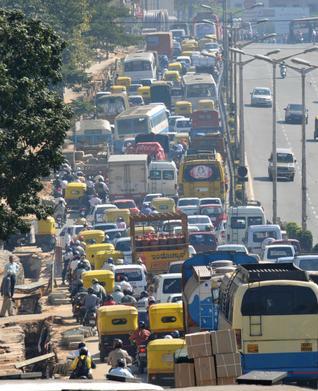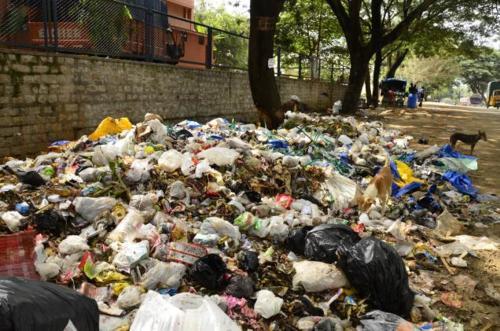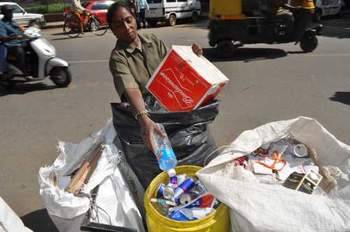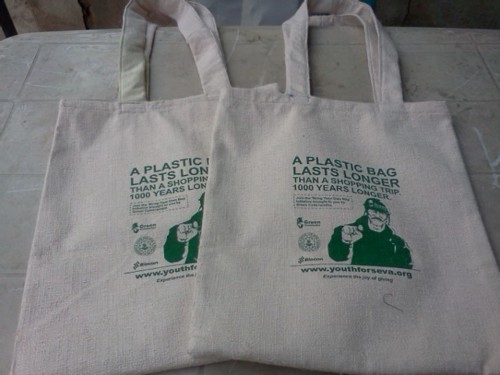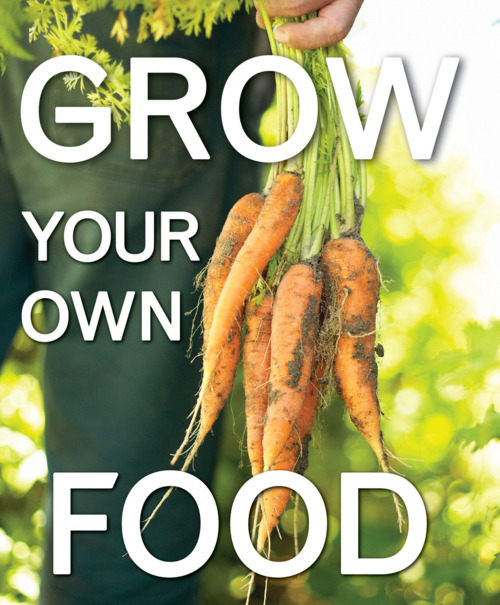As a child I remember sleeping under a dense canopy of leaves that weaved an ever changing pattern overhead as the wind danced around the leaves of many hues and colours. Curious hanuman langurs peered at me time to time in between their endless chattering. The place I grew up was a heaven. Children played on streets, where the only things that hurt our bare feet were thorns ,that could be pulled out without a grimace, we made tree houses and did pretend-lunches. We hit the streets right after school with our mothers running behind, stuffing morsels between rests. The only vehicles on the road were bicycles and we never stopped our games for them. The plentiful trees shaded us from the sun and rain and gave us many tit-bits we munched on when they fruited.
Fast forward to the present, which is no "present". Today living in the fastest growing city, the Silicon city, the (former?) garden city of India I battle the dust (Bangalore is the only city where all 3 kinds of dust mites abound) and the pollution (we add more cars everyday than babies being born every day in this city). Children are forced to play within the confines of their home devoid even of a garden space, we have cemented even the little space where we could not build an extra room (gotta keep out the nasties and mud!! - frankly the critters and mud does more good to your kid than the cemented space) We complain kids these days watch more TV and play video games, but have we given them any other option? What kind of a world are we passing as a legacy to our kids?
Unsegregated waste dumped by the roadside
We are happy to live in clean houses, shutting all windows in Air-conditioned offices, by dumping all our garbage just around the corner. Why bother about it? Its outside our home, someone will pick it up. The truth is much much bitter than we have thought. The unsegregated garbage we dump today overfilling the garbage bins, into any uninhabited enclosure, lakes etc., end up mostly as land fill into prime agricultural lands! They leech into the water bed contaminating our water. Why are we ignorant or rather so unwilling to deal with the reality even as it stares in our face?
Today we are rapidly accelerating towards an unsustainable lifestyle. The greenhouse gases have accumulated by 390ppm (350ppm is the safe limit), the oceanic temperatures are increasing- paving way for imbalance in the delicate cycles causing mass extinctions in the near future, we are facing unpredictable weathers, our underground fresh water level s are rapidly depleting, Our food contain more toxins than our body can digest.
All our acts sum together. We all are responsible. And what are we doing? Is there a way out? WHAT can be done??
I have compiled a few things that I have been following to reduce my carbon foot-print. After all change starts from home and within!
Segregate and compost:
Waste segregated and collected
Waste from our home is basically of 2 types: bio-degradable (the kitchen waste) and non-bio-degradable( plastic and e-waste). We all can easily take care of the waste generated from home and all it takes is hardly 5 minutes of our time every day. The dry waste (paper and plastic items must be segregated and kept in different bins - after washing if necessary) and given for recycling. The wet waste can be composted which in turn gives high-quality manure for our gardens. I have been using the
daily dump kumbha since last year to compost the kitchen waste. Its economical and no fuss at all.
Avoid plastics:
Get a cloth bag and always carry it around. Use a cloth bag while shopping and say no to plastics. Avoid using bottled water. Encourage your family and friends to do so too!
Mass transport / Car pool:
Use company mass transport / buses to travel or car pool
Water:
Shower baths means we end up using more water than is actually required during a bath. Bucket baths ensure we always know the quantity of water used. Install rain water harvester.
Organic food:
If you have a garden space – grow your own food organically. Most of the vegetables can easily be grown in pots! Buy local organic food.









